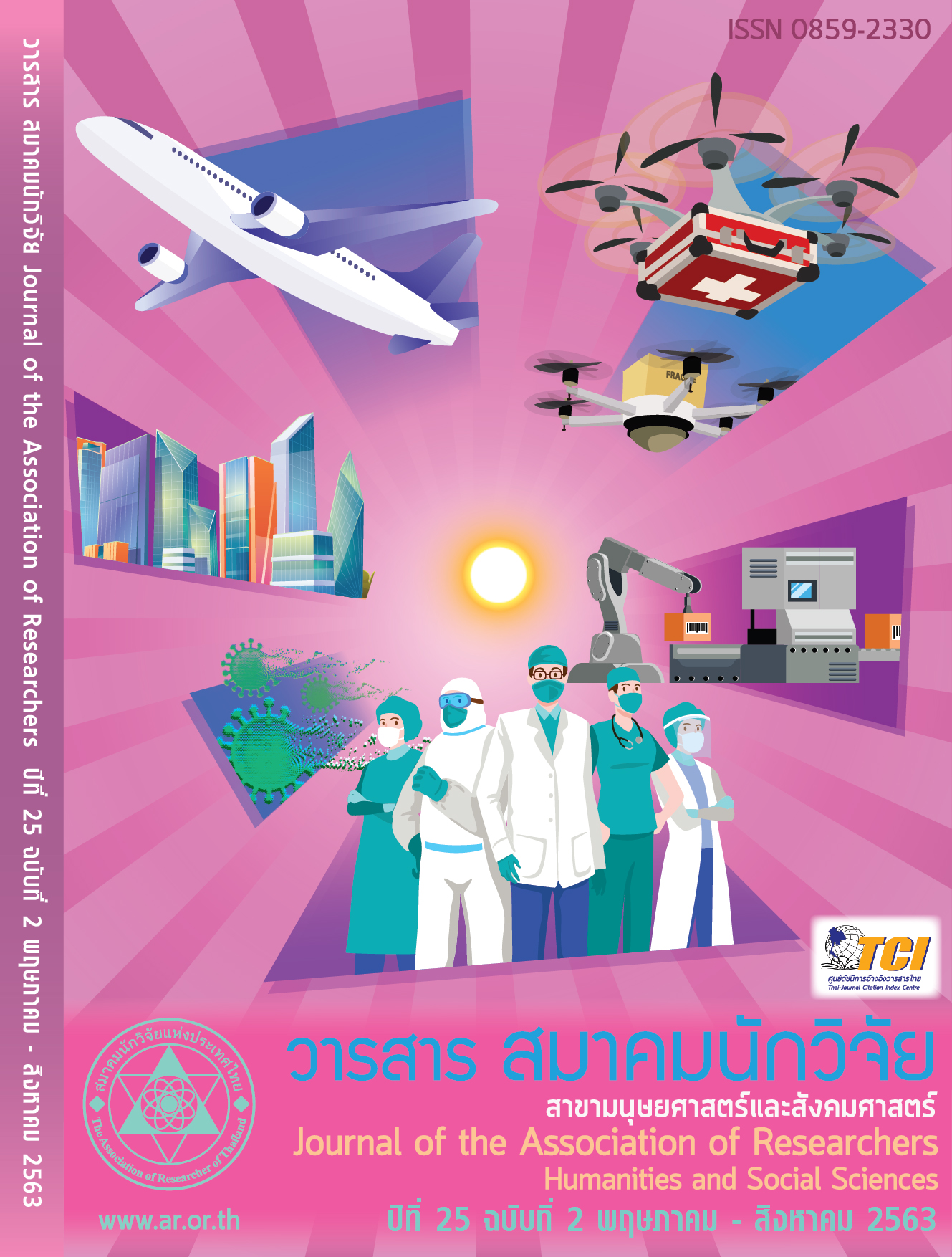The Attributes of Electric Vehicles that Affect the Purchasing Decision of Consumers in Bangkok Metropolitan
Main Article Content
Abstract
The objectives of this study are 1) to study the level of technology acceptance of electric vehicles of consumers in Bangkok 2) to study the attributes of electric vehicles that affect the purchasing decision of consumers in Bangkok and 3) to study the differences of individual factors that affect the technology acceptance of electric vehicles and the attributes of electric vehicles that affect the purchasing decision of consumers in Bangkok. This research is a quantitative research using questionnaires as a tool to collect data from 400 samples of residents in Bangkok. The statistics used in the data analysis consists of frequency, percentage, mean and standard deviation. Hypotheses test is done by using a t-test and one-way ANOVA at a statistical significance level of 0.05.
The research result shows that the samples have the technology acceptance of electric vehicles at a high level. The most level of technology acceptance is the attitude towards usage followed by usefulness perception and ease of use perception respectively. The characteristics of electric vehicles that consumers choose to buy are performance followed by brand, design, after-sales service, cost savings, safety, and suitable price respectively. From the study, the hypotheses are provided that the differences between gender and monthly income affect the technology acceptance of electric vehicles of consumers in Bangkok. Finally, the differences in age and monthly income affect the attributes of electric vehicles and the purchasing decision of consumers in Bangkok at the statistical significance level of 0.05.
Article Details
บทความที่ปรากฏในวารสารนี้ เป็นความรับผิดชอบของผู้เขียน ซึ่งสมาคมนักวิจัยไม่จำเป็นต้องเห็นด้วยเสมอไป การนำเสนอผลงานวิจัยและบทความในวารสารนี้ไปเผยแพร่สามารถกระทำได้ โดยระบุแหล่งอ้างอิงจาก "วารสารสมาคมนักวิจัย"
References
พิพัฒน์ นนทนาธรณ์. (2561). รวมบทความว่าด้วย...ความรับผิดชอบต่อสังคม. กรุงเทพมหานคร: ศูนย์ผู้นำธุรกิจเพื่อสังคมแห่งมหาวิทยาลัยเกษตรศาสตร์.
Aggelidis, V. P., & Chatzoglou, P. D. (2009). Using a modified technology acceptance model in hospitals. International journal of medical informatics, 78(2), 115-126.
Awa, H. O., Nwibere, B. M., & Inyang, B. J. (2010). The uptake of electronic commerce by SMEs: A Meta theoretical framework expanding the determining constructs of TAM and TOE frameworks. Journal of Global Business & Technology, 6(1), 1-27.
BLT Bangkok. (2018). The future of electric cars in urban people. Retrieved from https://bltbangkok.com/News/.
Cochran, W. G. (1977). Sampling Techniques (3rd ed.). New York: John Wiley & Sons.
Davis, F. D. (1989). Perceived usefulness, perceived ease of use, and user acceptance of information technology. MIS quarterly, 319-340.
Department of Environmental Quality Promotion. (2016). Paris Agreement. Retrieved from www.environnet.in.th/archives/996.
Kasikorn research. (2017). The Survey of Electric Vehicles found that Current Consumers are Number One in The Plug-In Hybrid Cars. Retrieved from http://www.newsdatatoday.com/images/News/OO1-9-17/963.pdf.
Leon, G. S., & Kanuk, L. L. (1994). Consumer Behavior. Prentice Hall Inc.
Nisson. (2018). The survey found that 44 percent of Thai consumers consider electric vehicles as the next car. Retrieved from https://www.nissan.co.th/news/purchase-decision-research.html.
Wang, Z., Zhao, C., Yin, J., & Zhang, B. (2017). Purchasing intentions of Chinese citizens on new energy vehicles: How should one respond to the current preferential policy?. Journal of Cleaner Production, 161, 1000-1010.
Nonthanathorn, P. (2018). Collections of Social Responsibility Articles. Bangkok: Social Enterprise Leadership Center. (in Thai)
Thephassadinnaaydhua, T. (2015). Factors Affecting The Decision to Purchasing The Ecology Cars (Eco-Cars) of The Consumers in Bangkok. Master of Economics (Business Economics), Kasetsart University. (in Thai)


